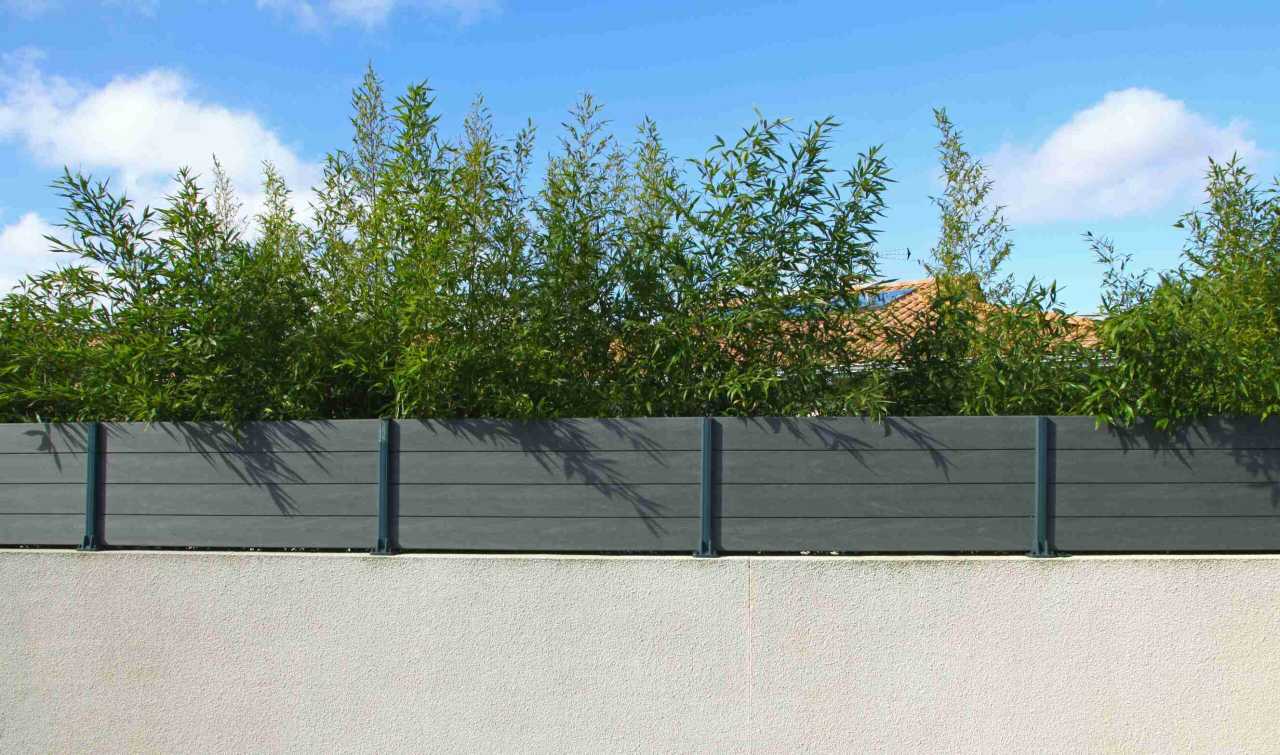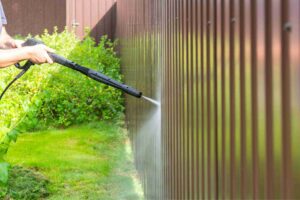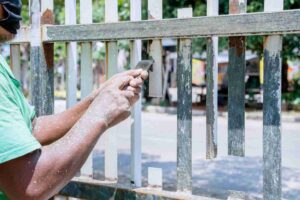What is Vinyl Fencing? All You Need to Know
In this blog post, we’ll delve into vinyl fencing, exploring its composition, advantages, disadvantages, and how it compares to other fencing materials. If you are looking for a durable and low-maintenance fencing solution, keep reading to answer the question, “What is vinyl fencing?”
What is Vinyl Fencing?
Vinyl fencing is a type of fencing made from a plastic-based material known as vinyl. Vinyl is a synthetic material made from ethylene and chlorine; both are natural substances. When these substances are combined, they create a material called Polyvinyl Chloride (PVC). PVC is commonly referred to as vinyl.
Vinyl fencing is made from PVC, the world’s second-largest manufactured and sold plastic resin. It’s often called “infrastructure plastic” because a significant portion of PVC, about 70%, is used for building and construction purposes. This is why vinyl fencing is a popular choice for fences, as it offers durability and strength suitable for outdoor use.
What Are the Advantages of Vinyl Fencing?
Vinyl fencing offers a range of advantages, making it an excellent choice for homeowners seeking a reliable and hassle-free fencing solution. Here, we break down the most important:
- Strength and flexibility: Vinyl fences are sturdy and provide reliable protection and security for your property. They can also withstand extreme weather conditions without bending or breaking.
- Low maintenance: Vinyl fences don’t require painting, and they are easy to clean with just soap and water.
- Different color options: Vinyl fencing comes in various colors, allowing you to choose the one that best complements your property’s aesthetic.
- Easy installation: Vinyl fences are relatively easy to install, making them a convenient option for homeowners.
- Durability: Vinyl fencing is durable and long-lasting, providing a reliable barrier for your property while requiring minimal maintenance. Unlike wood, they won’t splinter or rot over time.
You can also check out our website to learn more about the benefits of vinyl fencing.
What Are the Disadvantages of Vinyl Fencing?
Vinyl fencing comes with some disadvantages:
- Not a natural material: Unlike wood, which is natural, vinyl is a synthetic material. Some people prefer the look and feel of natural materials.
- High initial costs: Oftentimes, a vinyl fence can be more expensive compared to other fencing materials like wood. This initial investment might be a concern for some homeowners.
- Algae, mold, and mildew can cause staining: Over time, vinyl fences can develop stains from algae, mold, or mildew, especially in damp or shaded areas. These stains can detract from the appearance of the fence.
- Minimal repair options: If a vinyl fence gets damaged, the repair options may be limited. Unlike wood fences that can be easily repaired or replaced, vinyl fences may require more specialized repairs, which can be costly and time-consuming.
Is Vinyl and PVC the Same Thing?
Vinyl and PVC (Polyvinyl Chloride) are related but not precisely the same thing. PVC is a specific type of plastic made from vinyl chloride monomers through a process called polymerization. On the other hand, Vinyl is a broader term that encompasses a group of chemicals derived from ethylene, with vinyl chloride being one of them.
While PVC falls under the category of vinyl, vinyl itself includes other materials beyond PVC. In common usage, the terms “vinyl” and “PVC” are often used interchangeably, especially when referring to products like vinyl flooring, fencing, records, or PVC pipes, as these are typically made from PVC. However, technically speaking, PVC is just one type of vinyl material.
Is My Fence Made of Vinyl or PVC?
If you want to determine if your fence is vinyl or PVC, it’s important to state that they’re essentially the same regarding fencing. Both terms refer to fencing materials made from polyvinyl chloride (PVC). So, whether people call it vinyl fencing or PVC fencing, they’re talking about the same type of product: a fence made from PVC material.
Which is Safer, Vinyl or PVC?
Regarding safety, vinyl and PVC have no significant difference since they share the same material composition. Both are derived from polyvinyl chloride (PVC) resin. Commonly used in fencing, vinyl, and PVC materials are deemed safe when installed and maintained properly.
Which is Better Composite or PVC Fencing?

When comparing composite and PVC fencing, the choice ultimately depends on your priorities and specific needs, budget constraints, and environmental considerations to make the most informed decision.
If environmental sustainability is a top concern for you, composite fencing may be preferable due to its potential eco-friendliness. Composite fences made from non-toxic plastics like high-density polyethylene and low-density polyethylene can offer a more environmentally friendly choice than PVC fencing.
Composite fencing might also be the best option if durability in extreme weather conditions is a priority. Composite fences withstand harsh weather conditions better than PVC fencing, making them a suitable choice for areas with extreme climates.
However, if ease of maintenance and affordability are key factors, composite and PVC fencing are relatively low-maintenance and durable options. Both types require little to no maintenance and offer long-lasting performance.
Conclusion
Vinyl fencing offers a versatile and practical solution for homeowners seeking durable and low-maintenance fencing options. Whether you prioritize strength, flexibility, or aesthetic appeal, this material is reliable. For many homeowners, the benefits of vinyl fencing outweigh its limitations, such as initial costs and potential staining. When considering fencing options, weighing factors such as environmental impact, durability, and budget constraints will guide you in making an informed decision that best suits your needs.


